
AE 1070 - THE GOSS:
Dad Publishes his Book 'Becoming Australian'
Learn Australian English by listening to this episode of The Goss!
These are conversations with my old man Ian Smissen for you to learn more about Australian culture, news, and current affairs.

In today's episode...
How’s the week going so far, guys?
We’re excited here on The Goss today as my dad Ian Smissen announces one of his life achievements — publishing his book ‘Becoming Australian’!
This book idea of his started in early 2020. He’d been working on it bit by bit and when we hit lockdown, he decided to give it a full go.
And voila, the Smissen Family History!
It’s a large collection of photographs of the family, and important places, and of course, our family tree.
Yeah, it won’t be up for sale for the public — it’s got stories there that Dad would rather keep within its limited readers.
And he says it’s been tedious doing the editing work, and fun trying to trace the family ties – how we ‘became Australian’.
Would you try to trace your family tree, too? Let me know in the comments below!
** Want to wear the kookaburra shirt? Get yours here at https://aussieenglish.com.au/shirt **
Improve your listening skills today – listen, play, & pause this episode – and start speaking like a native English speaker!

Watch & listen to the convo!
Listen to today's episode!
This is the FREE podcast player. You can fast-forward and rewind easily as well as slow down or speed up the audio to suit your level.
If you’d like to use the Premium Podcast Player as well as get the downloadable transcripts, audio files, and videos for episodes, you can get instant access by joining the Premium Podcast membership here.
Get more out of every episode!

Premium Podcast members get access to...
- All 900+ podcast episodes including member-only episodes
- Member-only episode video lessons
- Downloadable transcript PDFs & audio files for every episode

Recent Episodes:


AE 1361 – The Goss: TV Shows We’re Currently Binge Watching [Members Only]
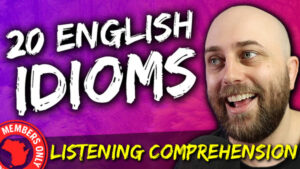
AE 1360 – 20 English Idioms Explained | Members Only
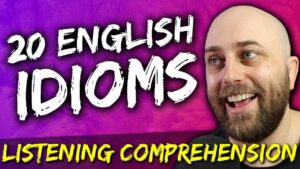
AE 1359 – 20 English Idioms To Transcribe
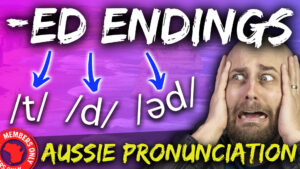
AE 1358 – How to Pronounce -ED Endings in Australian English [Members Only]
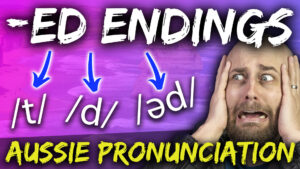
AE 1357 – How to Pronounce -ED Endings in Australian English

AE 1356 – Will AI Save Us Or Replace Us?
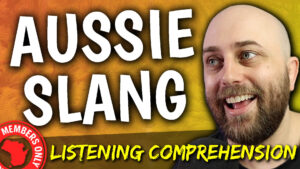
AE 1355 – 20 Aussie Slang Sentences Explained [Members Only]
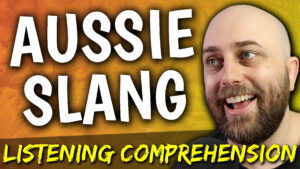
AE 1354 – 20 Aussie Slang Sentences to Transcribe

Share

Join my 5-Day FREE English Course!
Complete this 5-day course and learn how to study effectively with podcasts in order to level up your English quickly whilst having fun!


Want to improve a specific area of your English quickly and enjoyably?
Check out my series of Aussie English Courses.
English pronunciation, use of phrasal verbs, spoken English, and listening skills!

Have you got the Aussie English app?
Listen to all your favourite episodes of the Aussie English Podcast on the official AE app.
Download it for FREE below!

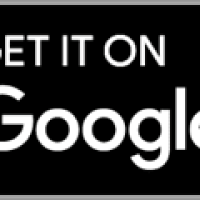

Want to improve a specific area of your English quickly and enjoyably?
Check out my series of Aussie English Courses.
English pronunciation, use of phrasal verbs, spoken English, and listening skills!
Leave a comment below & practice your English!






Responses
Done
Good stuff, Jodie!